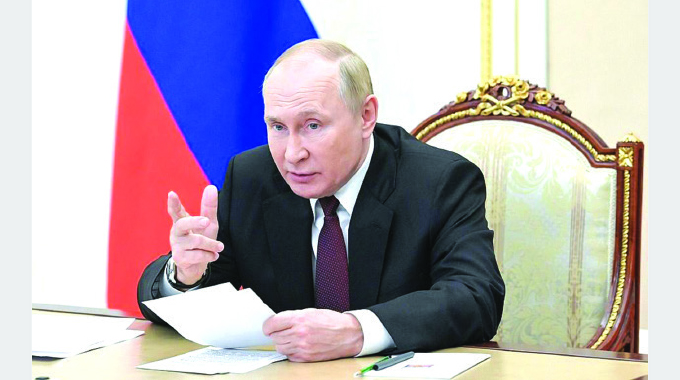The potential for conflict remains very high
the herald
The potential for conflict remains very high both globally and regionally. We are witnessing the rise of new risks and challenges to our collective security.
This is caused above all by a dramatic worsening of the global geopolitical confrontation. The world is changing and becoming multipolar before our eyes. However, some members of the international community do everything in their power to preserve their failing hegemony and, to this end, they use various political, military, economic, informational and other methods and means, ranging from the destruction of the legal framework of strategic stability to the adoption of unilateral sanctions against those who reject their policy.
They don’t even stop at openly subversive actions. I am referring to the explosions on the Nord Stream gas pipelines. This amounts in effect to the destruction of the common European energy infrastructure. This is what is being done, even if, to put it mildly, these methods cause colossal damage to the European economy and seriously compromise the quality of life of millions of people. And besides, they keep silent about who did this and who has everything to gain.
Some countries have long used blackmail, pressure and intimidation tactics throughout the CIS space. In particular, attempts continue to be made to implement “color revolution” scenarios, methods involving nationalism and extremism are employed and armed conflicts, which directly threaten the security of all members of the CEI, are fanned.
We can see the goals of those doing this in Ukraine, which has become an instrument of US foreign policy. The country has actually lost its sovereignty and is directly ruled by the United States, which uses it as a battering ram against Russia, Belarus, which is a member of our Union State, and the CSTO and CIS in general.
At the same time, we see the true attitude of the United States towards its client states.
Ukraine was almost immediately turned into a testing site for military biological experiments and is awash with weapons, including heavy weapons, disregarding statements by the kyiv regime about its desire for nuclear weapons . The kyiv authorities have publicly declared this will, but everyone is silent. We also know of their plans to use a so-called “dirty bomb” as a provocation.
Regarding threats in the CIS space, I would like to say that the threat level from ISIL, Al-Qaeda and other terrorist organizations has not diminished. They try to infiltrate the CIS countries and create secret cells, while the concentration of terrorist groups in Afghanistan, especially on the borders of Central Asian states, certainly carries a potential risk of invasion in the region.
It is evident that the CIS as a whole and its individual states have never faced such global threats before. It is therefore our common duty to protect our nations as much as possible from it, to strengthen stability and peace in the CIS area and to continue to promote mutually beneficial integration processes, which have provided an example of real partnership relations over the past decades.
We must use all the forces and all the means at our disposal to fulfill these tasks.
One of the priorities is to jointly counter any attempt to interfere in the internal affairs of the CIS countries. We know what it is. To resist it, we must more actively expose and curb the work of foreign secret services, aimed at destabilizing the situation in each CIS member state.
It is also important to continue our coordinated systemic fight against terrorism. Recently, there has been a positive dynamic in this regard.
The black arms market operating in Ukraine creates serious challenges. Cross-border criminal groups are actively involved in smuggling these weapons to other regions. These are not just small arms. There is a continuing risk of criminals seizing more powerful weapons, including man-portable air defense systems and precision weapons.
Furthermore, the act of terror on the Crimean bridge and the attempts to sabotage the Kursk nuclear power plant – after all, such attacks have already taken place around it – and many other incidents show the need for take enhanced security measures in the critical areas of transport and energy. facilities.
Some tasks remain as urgent as before. This applies to the fight against cybercrime and drug trafficking, the elimination of cross-border criminal groups and, of course, the development of cooperation in the protection of state borders. — The Kremlin, Moscow


Comments are closed.